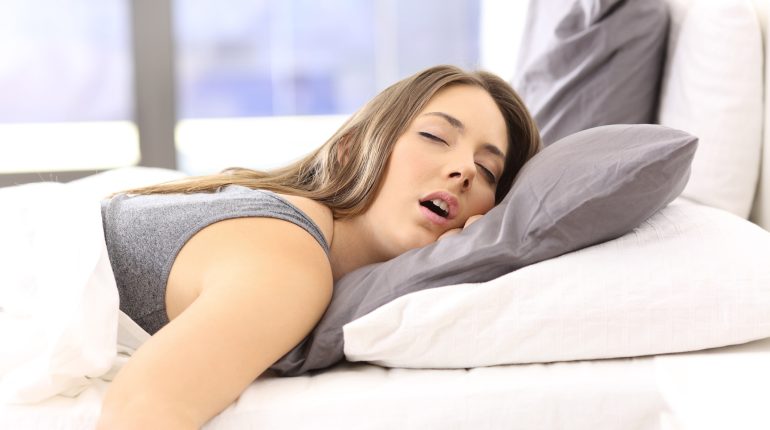The struggle for quality sleep appears to be ongoing. This is true to the point where many Americans seek out recommendations on the most recent sleep trends on social media.
An overwhelming majority of Americans (37% in 2024) have experimented with a trendy sleep technique, including members of Generation Z (55% to be exact), according to a study by the American Academy of Sleep Medicine (AASM).
According to Dr. Anne Marie Morse, a sleep medicine physician at Geisinger and a spokesperson for the American Academy of Sleep Medicine, patients should feel empowered to seek community, ideas for solutions, and a better understanding of their lived experience through online resources.
“It might look beautiful on other people, but it might not be the perfect fit for you. Just like a dress, your name, or your makeup.”
A look at the top sleep hacks circulating on social media and what they mean, according to sleep specialists.
Rotting bed
“Bed rotting” is the practice of lying in bed for long periods of time in order to maximise slumber, frequently to the detriment of obligations and social connections, with the intention of enhancing repair. Almost a quarter of Generation Z has done this, according to the AASM poll.
Even while it’s good to get some sleep every now and then, Morse warned that staying in bed for too long can harm one’s mental and physical health.
Even though she’s all for taking it easy every once in a while, she warned that staying in bed for too long for reasons other than sleeping or having sex might damage your sleep quality, which in turn could affect your physical and mental health.
Does it seem excessive? Morse denied that.
A person’s mind may be trained to link things that shouldn’t be. She went on to say that lying in bed could bring up terrible feelings from a recent breakup, anxiety, poor day, or any number of other challenges you face during the day, which can make it hard to fall or remain asleep.
According to Jade Wu, PhD, a sleep medicine psychologist and Sleep Advisor at Mattress Firm, individuals tend to link being awake with being in bed, which might make it less of a “protected” location for excellent quality sleep, as reported by Healthline in an interview with Wu.
Morse further by saying that those with preexisting conditions or who are extremely sedentary, such as those who spend a lot of time in bed, are more likely to experience problems including muscular atrophy, poor cardiovascular fitness, and obesity.
Wu stated that being sedentary does not improve one’s mood and can really harm one’s sleep, metabolism, and overall well-being.
“When we’ve been pushing ourselves too far, it can be beneficial to take a break. However, I usually recommend saving that for times when you’ve been really exerting yourself, working extra hours, or dealing with something extremely difficult,” she said. “I wouldn’t do it regularly only to put off getting out of bed in the morning.”
Wu recommended getting out into nature, doing some mindful meditation or yoga, reading a book, or seeking a peaceful change of scenery when you’re feeling overwhelmed by work or life, instead than remaining in bed for lengthy periods of time to recharge.
The consumption of a magnesium-infused “sleepy girl mocktail
A small percentage of people have experimented with magnesium water as a sleep aid (almost 9%). Half a cup of pure tart cherry juice, one tablespoon of magnesium powder, and sparkling water make up the “sleepy girl mocktail” that’s all the rage online.
Morse stated that, as long as one follows the established criteria, it is usually safe to drink magnesium water or take magnesium supplements. The mineral magnesium is essential for several bodily processes, including neurologic functioning, which in turn influences the quality of one’s sleep.
While studies examining the effects of magnesium supplements on sleep have shown mixed findings, some evidence suggests that taking a larger dosage can enhance the quality of sleep.
“The research limitations are usually associated with the type of magnesium studied and small groups of participants, which raises questions about the potential to apply this information,” Morse explained.
As an example, a 2023 synthesis of the relevant research found that magnesium levels were associated with better sleep quality in both observational studies and a single pilot trial.According to a 2012 Trusted Source study, subjects who took 500 mg of magnesium daily for eight weeks reported less subjective symptoms of insomnia compared to those who received a placebo.
Nevertheless, there is no proven link between magnesium supplementation and better sleep quality according to large-scale randomised control experiments.
According to Morse, magnesium supplements might induce loose stools or diarrhoea if used for sleep enhancement purposes. This is because magnesium is also used medicinally to treat gastrointestinal problems such heartburn, constipation, indigestion, and constipation.
I recommend doing this instead: If you’re having trouble sleeping, see your doctor before taking magnesium or any other supplement or medicine.












